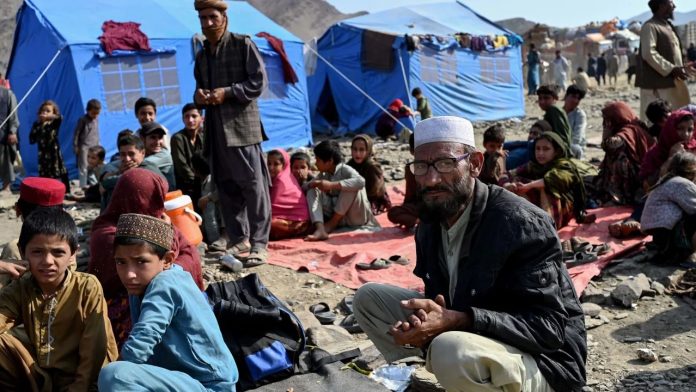United Nations Human Rights Chief Volker Türk said he is “alarmed” by reports that Afghan refugees are being abused in Pakistan as the country carries out its policy of forced mass deportation.
In a statement Wednesday, Türk expressed concern at reports that “the arbitrary expulsion of Afghan nationals from Pakistan has been accompanied by abuse, including ill-treatment, arbitrary arrests and detention, destruction of property and personal belongings, and extortion.”
He called on Pakistani authorities to suspend the repatriation programme “until individual assessment procedures and other safeguards required by international law are in place,” and appealed to Islamabad to probe “complaints of abuse by law enforcement officers.”
CNN has reached out to the Pakistan authorities for comment.
Pakistan, which is home to more than a million registered Afghan refugees, launched a mass deportation drive asking them to voluntarily leave the country by November 1.
According to the UN, more than 327,000 refugees have been repatriated to Afghanistan from Pakistan, with “many compelled to leave out of fear of arrest.”
The UN has received reports of night raids, confiscation of cash, jewellery, livestock, arbitrary arrests and detentions of Afghan refugees by the local Pakistan police, the statement said.
“Arbitrary arrests and detentions are contrary to Pakistan’s obligations under international law,” Türk added.
The UN Human Rights Chief called on Pakistan authorities to ensure protection for individuals who “may face persecution, torture, ill-treatment or other irreparable harm in Afghanistan, in accordance with the principle of non-refoulement.”
Türk added that women and girls are particularly vulnerable if repatriated involuntarily as the “de facto authorities’ policies and edicts” limit their right to education, access to earning a living, movement and participation in public life.
When the Taliban regained control of the country in August 2021, the radical Islamist group shut down girls’ schools and banned women from attending university. More recently they have closed beauty salons and prevented women from visiting a popular national park.
As of the end of 2022, Pakistan hosted more than 1.3 million registered Afghan refugees and 427,000 people in “refugee-like situations” from Afghanistan, according to the United Nations’ refugee agency.
But their presence in Pakistan has long been controversial, with police crackdowns and threats of deportation in previous years.
Pakistan’s authorities have framed it a crackdown on “illegal immigrants.”
A task force has been formed to “seize people with fake identity cards and illegal properties built on their fake documents,” while the country’s national database and registration body has been ordered to cancel any “fake identity cards” and confirm any cases with DNA testing, authorities said earlier.
Many Afghans fled the Soviet invasion of their country in 1979, settling in Pakistan during the biggest refugee crisis in the world at the time. Another wave took place in 2021 after the Taliban retook Kabul, with thousands of Afghans crossing the Pakistan border, often with incomplete paperwork while waiting for visas to third countries, such as the United States.

































